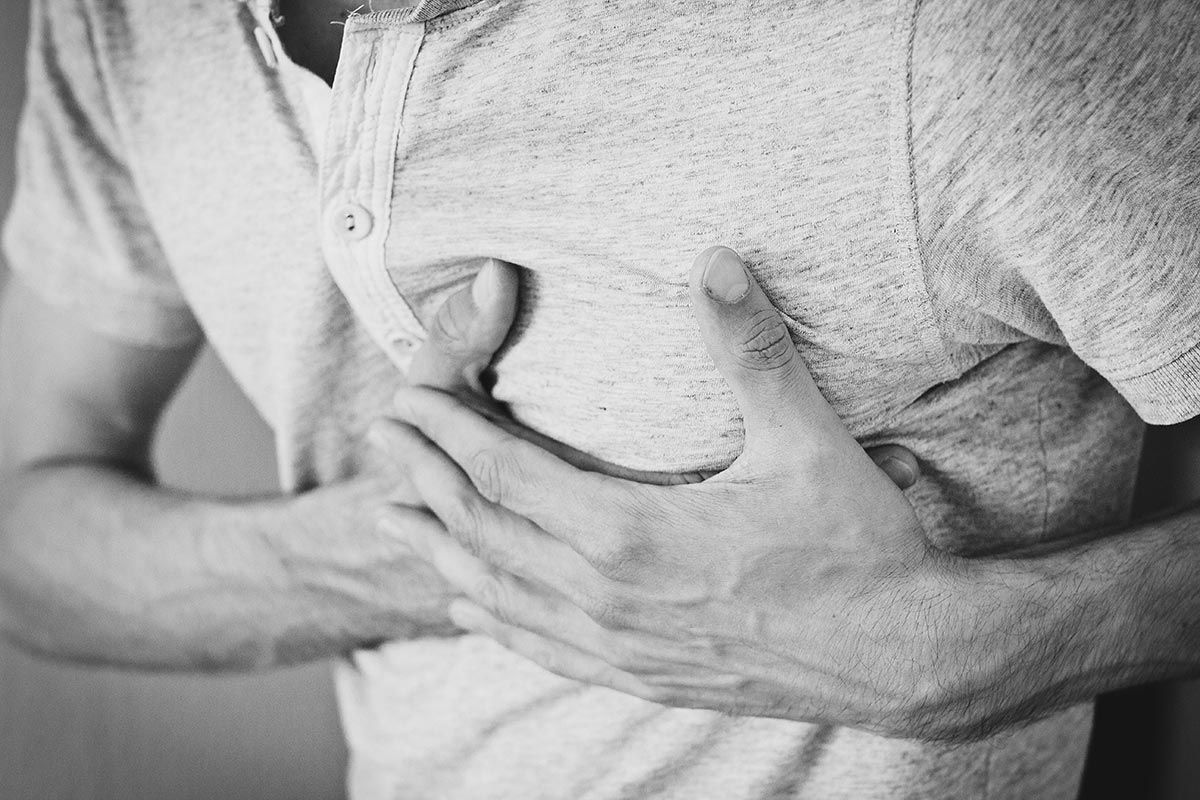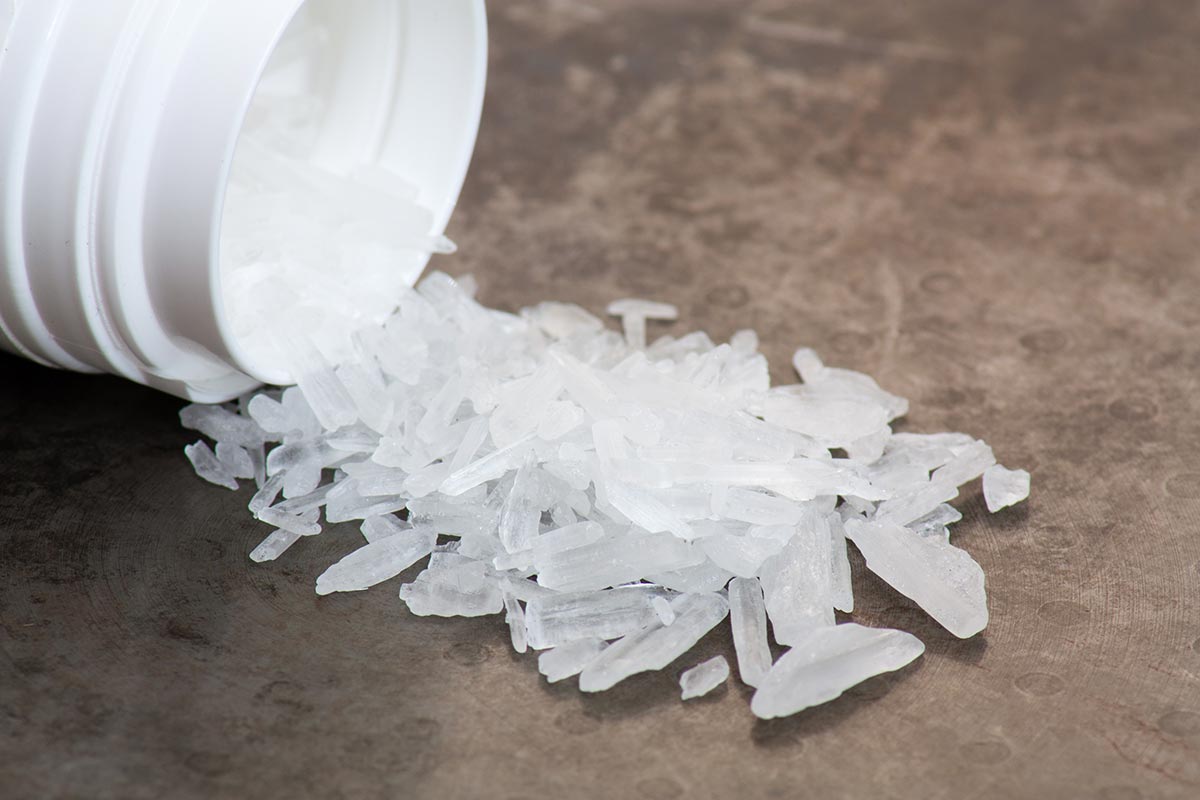
Methamphetamine or meth is one of the most commonly abused drugs in the United States. In fact, with an estimated 2.5 million Americans using the drug, it’s extremely likely that you or someone you know uses it. In addition, some 1.6 million Americans are addicted to meth, which means they heavily use and go through withdrawal if they stop using it. Meth is well-known to cause myriad health issues, ranging from horrifying weight loss to rotting teeth and hair loss. Most people are also aware of the significant slips in personal hygiene, personal care, and care of social responsibilities associated with meth. However, fewer people are aware of the fact that meth can have a significant impact on your heart and your cardiovascular health.In addition to causing significant problems to your mental health, your social life, your financial life, it can significantly stress your heart,
cause permanent heart and cardiovascular damage, and can even kill you.It’s the second most common cause of death in methamphetamine users, following accidental overdose. There’s no safe way to use meth, so if you or your loved one are using it, you are putting yourself at risk.
Heart Risks Caused by Methamphetamine
Meth can significantly damage your heart and your cardiovascular system. It can also indirectly cause to both indirectly by preventing you from cooling down properly. Here, it’s important to know that methamphetamine is a stimulant that causes increases in heart rate, blood pressure, and the production of dopamine, serotonin, and even adrenaline. It’s an “upper” and many people who use it won’t sleep until the dose wears off – which can be over 36 hours.

- Heart Attack – Methamphetamine users are significantly more likely to suffer from a heart attack than non-methamphetamine users. This happens through two mechanisms. The first is that meth is a stimulant and causes increased blood pressure and increased activity. Users may also continue using, taking multiple hits over the course of a day and may stay at this state of heightened arousal for 12+ hours. This can result in significant strain to the heart and eventually in a heart attack. However, methamphetamine can also cause cardiotoxicity, which may result in a heart attack. Here, catecholamine builds up in the heart and may cause heart muscle death, resulting in heart failure or a heart attack.
- Cardiotoxicity – Catecholamine activity is responsible for modulating the heart rate and blood pressure. Excessive catecholamine activity results in high blood pressure and high heart rate. This can eventually lead to heart muscle death, heart attack, and heart failure. It can also cause narrowing of the blood vessels and spasms of the blood vessels, both of which can result in other complications.
- Stroke – Methamphetamine causes increased risks to the heart, which means that you are at a significantly higher risk of stroke. Here, you’re at the highest risk if you’re over the age of 45. However, anyone is at risk and it’s usually a mix of increased heart activity and heat. Therefore, you can reduce risks by keeping cool and not overextending activity beyond what you would do while clean and sober.
- Cardiovascular Damage – Meth causes significant strain to the cardiovascular system which can result in semipermanent and permanent damage. Here, spasms, narrowing of the blood vessels, clots, and strain are all likely side-effects. Cardiovascular damage can result in needing surgery. It can increase your risk of heart complications. It can also result in brain damage when a blood vessel bursts, clots, or hemorrhages.
- Weight Loss – many people taking methamphetamine end up losing a lot of weight. That’s because the drug increases your metabolism and reduces interest in food. However, this can create a lot of extra strain on your heart, especially if that weight loss is rapid. Maintaining your nutrition levels and physical weight is important for your heart health. Heart strain from weight loss or from being too thin can cause heart attack, stroke, and heart failure.
In each case, the longer you use methamphetamine, the more built-up strain that it causes. This means that using meth for longer results in increased risks, longer term damage, and more built-up damage over time. However, if you’re at risk of a heart attack, have a history of heart disease, or have a risk of heart strain, then you’re at use every single time you use the drug.
All of these health problems can vary in severity depending on your sensitivity, genetic profile, weight, gender, physical health, and starting point. Someone with a high risk of heart problems is more likely to have problems with meth. However, someone who is already underweight when they start meth might over-strain an already weak heart and immediately cause health problems or death. Eventually, without a thorough health panel upfront to see if you are at risk, you have no way of knowing how you’ll respond to using meth every single time you use the drug.
Get Your Questions Answered
Our expert & caring staff on site are available 24/7. Call us today.

Can You Avoid Heart Damage with Meth?
Unfortunately, there’s no way to avoid potential heart damage from meth if you are using it. However, if you are using the drug anyway, taking steps to reduce heart damage can make it safer for you. That means:
- Using less of the drug at once
- Sticking to a few hits and then taking breaks. The longer you’re high, the worse heart strain gets
- Getting plenty of sleep, typically no more than about 18-20 hours apart from the last time you slept
- Eating well to maintain your physical weight to reduce strain on your heart
- Talking to a doctor about your usage and how to make it as healthy as possible
Unfortunately, there’s no way to make methamphetamine use safe. You’ll always take on risks and you’ll always increase heart strain, risk heart damage, and risk cardiovascular disease. The longer and the more you use meth, the worse those risks will get. That’s even true if you’re a casual user and not struggling with addiction or dependence. You’ll always be putting yourself at risk of physical health problems including long-term and permanent heart damage. The best way to mitigate that damage is to not use meth at all. However, if you’re already using, getting help with quitting, detoxing in a healthy manner rather than going “cold turkey” without support, and ensuring that you move safely through detox is the best start you can make to getting your health back.
Getting Help
If you or a loved one is using meth, it is not safe. Methamphetamine always creates a risk of heart damage, heart attack, overdose, and psychosis. There is no safe way to use the drug. Getting help can mean getting assistance with detox and withdrawal, so you can get off of the drug without causing additional health risks. It can also mean getting support and mental health treatment, so you can get started with recovery and with learning the skills to stay in recovery rather than relapsing.
Meth is extremely common. However, it’s also dangerous for your body and for your mental health. The sooner you get help, the easier it will be to recover and the less likely you are to deal with long-term side-effects. Good luck getting treatment.






